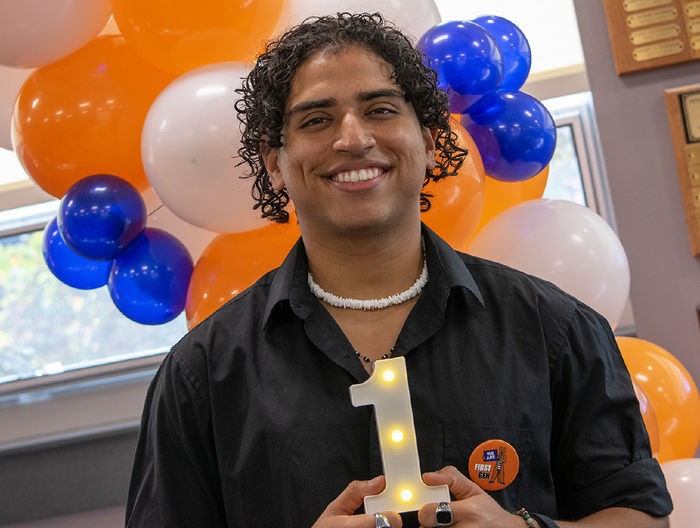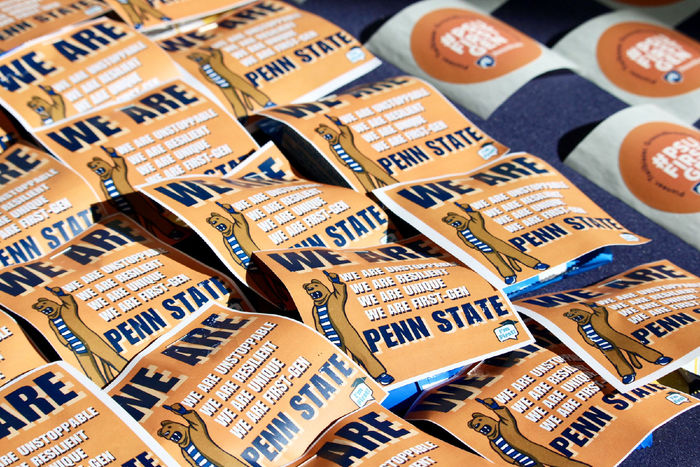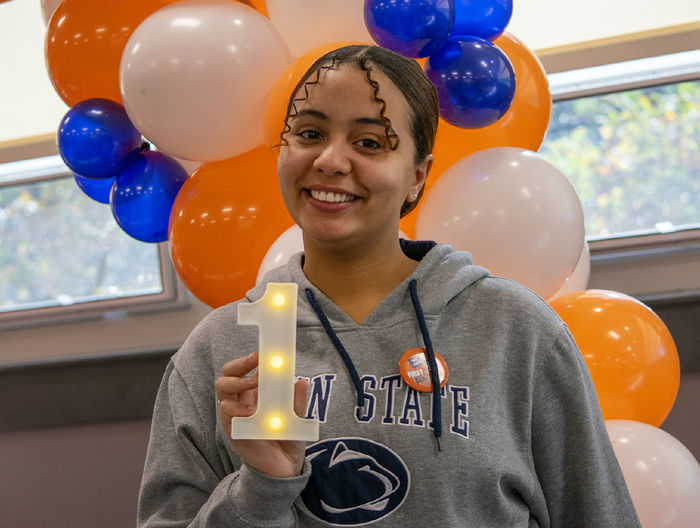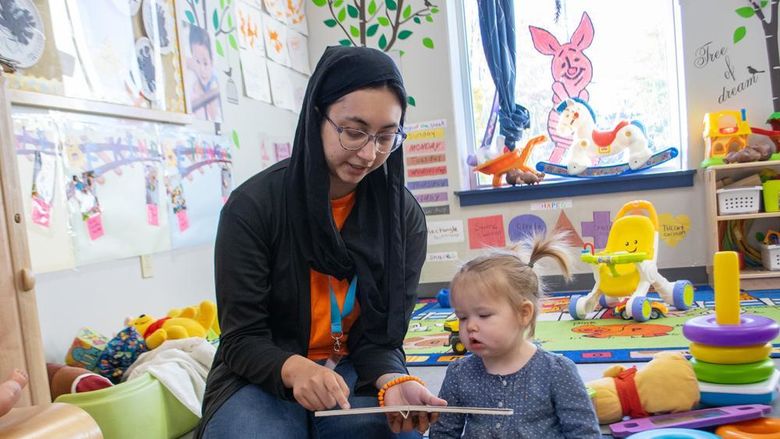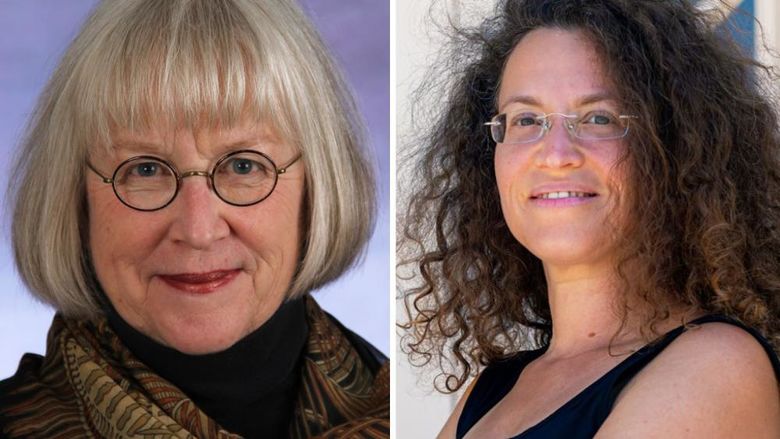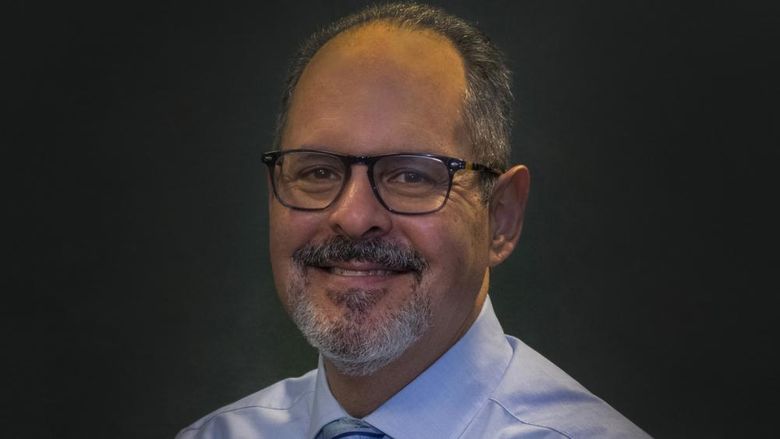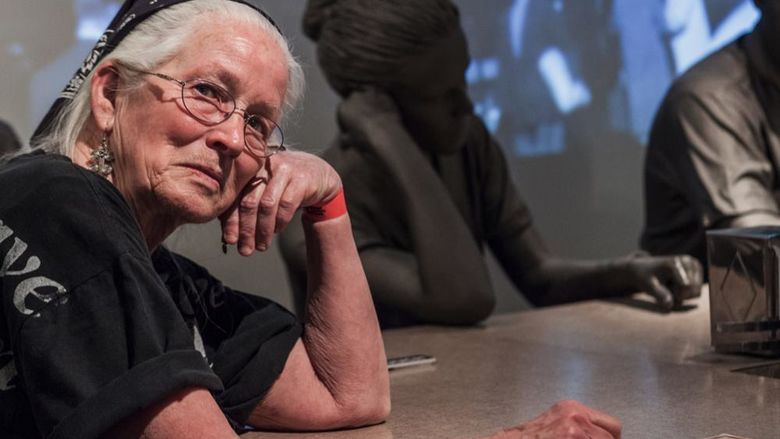
Penn State Harrisburg recently held two events to celebrate first-gen students and help connect them with resources.
MIDDLETOWN, Pa. — Juan Serrano, a kinesiology major at Penn State Harrisburg, immigrated to the United States from Colombia with his family. In the town he hails from, El Cerrito, people work hard and don’t give up, he said, a trait he’s carrying on by not giving up while he pursues his college degree.
Serrano is a first-generation college student — the first in his family to be on the path to a bachelor’s degree. His mom has worked multiple jobs, and it’s important to her that he be successful, he said. He wants to show that her efforts and sacrifices will have a big reward when he completes his degree.
Being a first-generation college student, “is meaningful to me because it shows my family and mother, to be specific, that all her efforts are not in vain,” Serrano said. “All the multiple jobs that she has, all the hours that she goes without sleeping … I’m making them worth it.”
Penn State Harrisburg recently held events to celebrate first-generation students, connect them with resources, and help them meet first-generation faculty and staff who are available to help them.
Serrano and fellow first-generation student Raulybel Perez, a marketing major, worked with a committee of Student Affairs staff members to plan the events – a "chat and chew" connecting students with faculty and staff members who were, themselves, first-generation students; and a celebration in the Olmsted Building atrium.
Serrano first learned about being a first-generation student at Penn State Abington, where he began his studies. First-generation students can sometimes go under the radar, he said, and some aren’t even aware they are first-generation. If their efforts aren’t recognized, they can be lost.
“We’re building a path for others to follow,” Serrano said.
Penn State recognizes first-generation students as any student whose immediate parents or legal guardians have not completed a baccalaureate degree. About 25 percent of Penn State’s undergraduate population at University Park and the Commonwealth Campuses combined are first generation.
Nicholas Paesano, equity and compliance specialist/sexual misconduct resource person in the college’s Student Affairs office, said it’s important to recognize that first-generation students may have unseen barriers in their college careers. Students whose parents, guardians and supporters have not gone to college might have more questions and challenges along the way as they navigate applications and financial aid forms, scheduling classes and working with professors.
“I think it’s important to provide recognition that it is a different journey,” said Paesano, who was a first-gen student himself. Those students may need extra layers of support, he said, so it’s important to have mentors and places those students know they can go to seek help.
Perez always knew she wanted to go to college, she said. Her parents, immigrants from Dominican Republic, didn’t have education past middle school, and several of her siblings started college, with one sister eventually earning an associate’s degree. Perez will be the first in her family to earn a bachelor’s degree.
“Being first-gen, I struggled a lot applying for college,” Perez said, noting that she enrolled in a program to help guide her through the process and sought assistance from her high school guidance counselors, who helped with steps like the FAFSA federal aid application — a form her parents misunderstood.
“It was like me having to learn it and teach it to my parents,” she said.
It’s a huge process to go through alone, she said, so it’s important to lift up and support first-generation students — otherwise, she suspects many first-generation students might not go to college.
“I’m really glad I found a community of people who are also first-gen,” she added, noting that they share unique experiences and she knows she has people she can go to with questions.
Being a first-generation college student is meaningful to Perez, particularly as a child of immigrants, she said.
“Getting this far shows them, all the effort you put into coming to this country is actually paying off,” Perez said. “It’s very meaningful for my parents. I’m just contacting them every day, telling them how college is going. They’re learning little by little. They get very excited. My dad does not take off his ‘Penn State Dad’ hat.”
